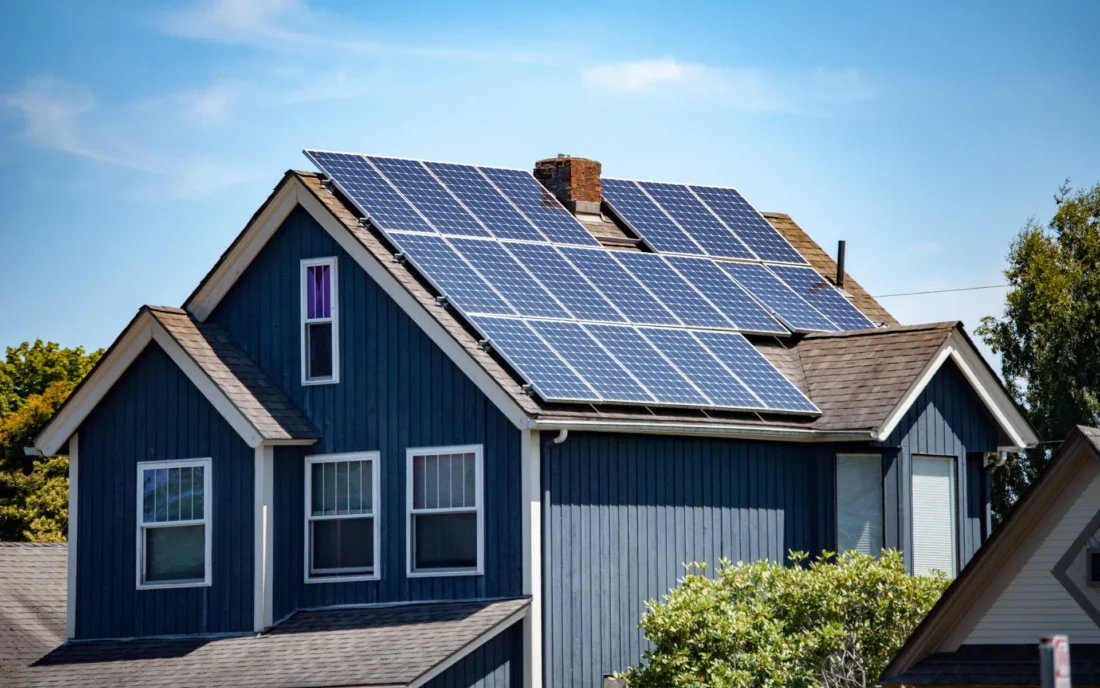Solar energy has emerged as a main alternative to standard energy resources, promising decreased utility payments, environmental sustainability, and energy independence. But with the premature charges nonetheless widespread, many homeowners are asking, are solar panels worth it? The answer depends on a combination of economic elements, location, energy wishes, and government incentives. In this article, we’ll break down the true cost and advantages of solar energy to help you make a knowledgeable decision. Whether you’re considering hiring a Residential Solar Panel Installer In Texas or just exploring alternatives, this guide offers a complete analysis.

The Initial Investment: What Are You Paying For?
Installing solar panels includes more than just the panels themselves. The overall cost includes inverters, mounting hardware, wiring, leads, and extensions. On average, a residential solar system inside the U.S. costs between $15,000 and $25,000 before federal tax credits and local incentives. The federal solar Investment Tax Credit (ITC) currently offers a 30% deduction on the full setup value. In addition to the ITC, many states offer rebates and incentives that may significantly lessen your upfront expenses. Depending on your kingdom and software issuer, these could take the shape of overall performance-primarily based incentives, internet metering credit, or property tax exemptions.
Despite those incentives, the preliminary fee remains a concern for many owners. However, financing alternatives consisting of solar loans, leases, and energy purchase agreements (PPAs) have made solar systems more affordable than ever before.
Long-Term Savings on Utility Bills
The number one financial gain of solar panels lies in lowering or maybe removing your energy bill. Depending on your gadget size and household electricity intake, you could see month-to-month financial savings of $50 to $200 or more. The common payback duration—the time it takes for the savings to equal your investment—ranges from 6 to 10 years. After this, your machine effectively generates unfastened power for the remainder of its lifespan, which is normally 25 to 30 years. Over this era, many homeowners stored tens of thousands of greenbacks. Of course, the exact quantity depends on neighborhood software quotes and the amount of sunlight your property receives. Homes in solar-rich states like Arizona, California, and Texas have a tendency to benefit more because of higher power generation.
Increase in Property Value
Solar panels can also increase your property’s value for resale. Based on research conducted with the help of Zillow as well as Zillow and the National Renewable Energy Laboratory (NREL), houses that have solar panels are generally more popular and sell for a better price. up to 4.1 percent more than similar homes without solar. This brings costs that come from the appeal of lower electricity prices and the presence of a renewable energy machine. Additionally, many states exempt the added fee of solar structures from property taxes, allowing you to benefit without increasing your annual tax bill.
Maintenance and Lifespan
Solar panel structures are noticeably low-maintenance. Most panels include a 25-year guarantee and continue to supply strength long after that, albeit at slightly decreased efficiency. Occasional cleansing and periodic inspections are generally all that’s needed to ensure the surest overall performance. Inverters may additionally need to be replaced after 10 to 15 years, and tracking systems may also require software updates, but these expenses are especially minor compared to overall financial savings. If you’ve opted for expert Residential Solar Installation services PA, renovation packages and warranties are typically covered as part of the service settlement.
Environmental Benefits
One of the biggest advantages of solar power is the environmental impact it has. A common household solar gadget could reduce carbon emissions by three to four tons over twelve months. That’s similar to installing more than a hundred trees every year. By reducing dependence on fossil fuels, solar panels combat water pollution as well as air pollution and greenhouse gas emissions. For homeowners who are environmentally conscious, the benefits could exceed the economic benefits for economics. Installing solar panels is a tangible way to make contributions to a greater sustainable destiny.
Factors That Affect Solar Value
While solar panels offer several advantages, their cost can vary depending on several factors:
Location: Solar performance relies heavily on geographic vicinity. Homes in areas with more sunlight yield extra strong financial savings.
Roof Condition: A roof in bad condition may require an alternative before installation, adding to the upfront cost.
Orientation and Shading: South-facing roofs with minimal color generate the most power. Trees, chimneys, or neighboring homes can lessen efficiency.
Local Utility Rates: High-strength quotes imply better ability to achieve financial savings, enhancing the return on investment.
Government Incentives: The availability of nearby state and federal incentives can substantially affect your net cost.
Before making the switch, it’s important to assess your property’s solar capacity through targeted Solar Estimating tools. These gears use satellite TV for PC imaging, local weather data, and strength intake history to offer an accurate projection of prices and benefits tailor-made to your specific region.
Conclusion: Are Solar Panels Worth It?
For many owners, solar panels are a clever long-term funding option. They reduce strength charges and growth property costs and assist the environment. Tax credits are now available, and with better financing options, the barrier to fees has become less of a hurdle. It’s also no longer the same for everyone. Solar panels’ effectiveness is contingent on the location you reside in and your current electricity consumption, and the rewards you can enjoy within your area. To determine whether solar energy is the right choice for your requirements, you should consider seeking an opinion from a professional and specific estimates that are custom-made to fit the specifications of your home and needs. When you are aware of the costs initially and the long-term benefits and advantages, you’ll be armed with the knowledge to decide that solar panels are the best option for you and your family.



